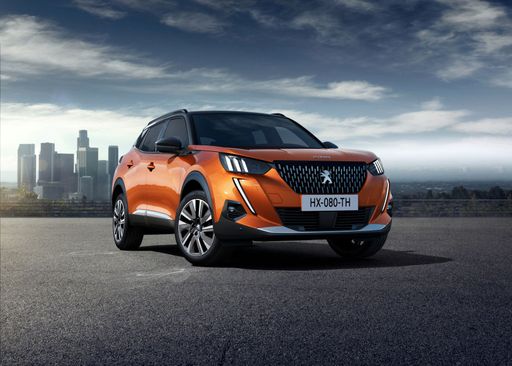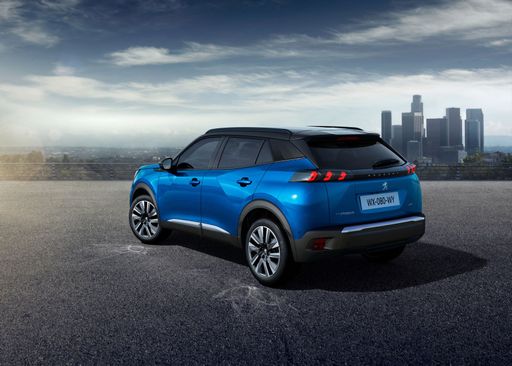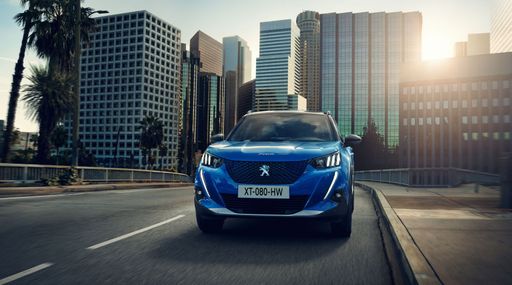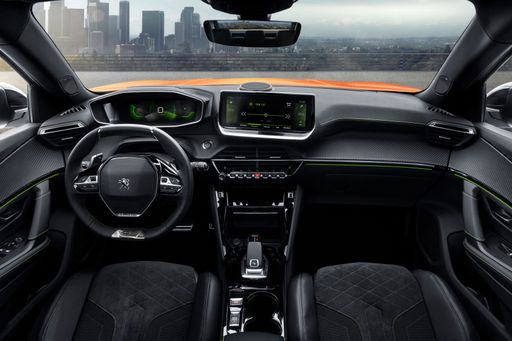Peugeot 2008 vs Toyota Yaris – Differences & prices compared
Everyday use, family trips or long-distance drives – here’s where the differences show.
Discover whether Peugeot 2008 or Toyota Yaris fits your lifestyle better.
Here’s where it gets real: The technical differences in detail
Costs and Efficiency: Price and efficiency are often the first things buyers look at. Here it becomes clear which model has the long-term edge – whether at the pump, the plug, or in purchase price.
Toyota Yaris has a slightly advantage in terms of price – it starts at 21900 £, while the Peugeot 2008 costs 24500 £. That’s a price difference of around 2605 £.
Fuel consumption also shows a difference: the Toyota Yaris manages with 3.80 L and is therefore noticeably more efficient than the Peugeot 2008 with 5 L. The difference is about 1.20 L per 100 km.
Engine and Performance: Power, torque and acceleration say a lot about how a car feels on the road. This is where you see which model delivers more driving dynamics.
When it comes to engine power, the Toyota Yaris has a significantly edge – offering 280 HP compared to 156 HP. That’s roughly 124 HP more horsepower.
In acceleration from 0 to 100 km/h, the Toyota Yaris is significantly quicker – completing the sprint in 5.50 s, while the Peugeot 2008 takes 8.30 s. That’s about 2.80 s faster.
In terms of top speed, the Toyota Yaris performs a touch better – reaching 230 km/h, while the Peugeot 2008 tops out at 206 km/h. The difference is around 24 km/h.
There’s also a difference in torque: the Toyota Yaris pulls noticeably stronger with 390 Nm compared to 270 Nm. That’s about 120 Nm difference.
Space and Everyday Use: Beyond pure performance, interior space and usability matter most in daily life. This is where you see which car is more practical and versatile.
Both vehicles offer seating for 5 people.
In curb weight, the Toyota Yaris is somewhat lighter – 1090 kg compared to 1263 kg. The difference is around 173 kg.
In terms of boot space, the Peugeot 2008 offers noticeably more room – 434 L compared to 286 L. That’s a difference of about 148 L.
In maximum load capacity, the Peugeot 2008 performs visibly better – up to 1467 L, which is about 532 L more than the Toyota Yaris.
When it comes to payload, Toyota Yaris slightly takes the win – 525 kg compared to 460 kg. That’s a difference of about 65 kg.
Our conclusion: The Toyota Yaris proves to be is clearly superior and thus becomes our DriveDuel Champion!
Overall, Toyota Yaris is the better all-rounder in this comparison.
Peugeot 2008
The Peugeot 2008 stands out in the compact SUV market with its blend of striking design and practical functionality. It offers a comfortable ride with a sophisticated interior that exudes quality, making it ideal for both urban commutes and longer journeys. The model's efficient performance and range of modern features further enhance its appeal to a diverse range of drivers.
details @ media.stellantis.com
@ media.stellantis.com
 @ media.stellantis.com
@ media.stellantis.com
 @ media.stellantis.com
@ media.stellantis.com
 @ media.stellantis.com
@ media.stellantis.com
Toyota Yaris
The Toyota Yaris exudes a charming blend of practicality and style, making it an appealing choice for urban drivers. Its compact design allows for easy manoeuvrability in crowded city streets, while the interior offers a surprisingly spacious and comfortable environment. With a focus on fuel efficiency and reliability, the Yaris remains a popular option for those seeking a balance between performance and economy.
details @ Toyota
@ Toyota
 @ Toyota
@ Toyota

|

|
|
|
|
Costs and Consumption |
|
|---|---|
|
Price
24500 - 40300 £
|
Price
21900 - 46700 £
|
|
Consumption L/100km
5 - 6.2 L
|
Consumption L/100km
3.8 - 9.5 L
|
|
Consumption kWh/100km
15.50 kWh
|
Consumption kWh/100km
-
|
|
Electric Range
406 km
|
Electric Range
-
|
|
Battery Capacity
51 kWh
|
Battery Capacity
-
|
|
co2
0 - 140 g/km
|
co2
87 - 215 g/km
|
|
Fuel tank capacity
44 L
|
Fuel tank capacity
36 - 50 L
|
Dimensions and Body |
|
|---|---|
|
Body Type
SUV
|
Body Type
Hatchback
|
|
Seats
5
|
Seats
4 - 5
|
|
Doors
5
|
Doors
3 - 5
|
|
Curb weight
1263 - 1623 kg
|
Curb weight
1090 - 1356 kg
|
|
Trunk capacity
434 L
|
Trunk capacity
141 - 286 L
|
|
Length
4304 mm
|
Length
3940 - 3995 mm
|
|
Width
1770 mm
|
Width
1745 - 1805 mm
|
|
Height
1523 mm
|
Height
1455 - 1500 mm
|
|
Max trunk capacity
1467 L
|
Max trunk capacity
935 L
|
|
Payload
407 - 460 kg
|
Payload
289 - 525 kg
|
Engine and Performance |
|
|---|---|
|
Engine Type
Petrol, Electric, Petrol MHEV
|
Engine Type
Full Hybrid, Petrol
|
|
Transmission
Manuel, Automatic
|
Transmission
Automatic, Manuel
|
|
Transmission Detail
Manual Gearbox, Reduction Gearbox, Automatic Gearbox, Dual-Clutch Automatic
|
Transmission Detail
CVT, Manual Gearbox, Automatic Gearbox
|
|
Drive Type
Front-Wheel Drive
|
Drive Type
Front-Wheel Drive, All-Wheel Drive
|
|
Power HP
101 - 156 HP
|
Power HP
116 - 280 HP
|
|
Acceleration 0-100km/h
8.3 - 10.9 s
|
Acceleration 0-100km/h
5.5 - 9.7 s
|
|
Max Speed
150 - 206 km/h
|
Max Speed
175 - 230 km/h
|
|
Torque
205 - 270 Nm
|
Torque
390 Nm
|
|
Number of Cylinders
3
|
Number of Cylinders
3
|
|
Power kW
74 - 115 kW
|
Power kW
85 - 206 kW
|
|
Engine capacity
1199 cm3
|
Engine capacity
1490 - 1618 cm3
|
General |
|
|---|---|
|
Model Year
2023 - 2025
|
Model Year
2024 - 2025
|
|
CO2 Efficiency Class
D, A, E, C
|
CO2 Efficiency Class
B, G
|
|
Brand
Peugeot
|
Brand
Toyota
|
Is the Peugeot 2008 offered with different drivetrains?
The Peugeot 2008 is available as Front-Wheel Drive.
The prices and data displayed are estimates based on German list prices and may vary by country. This information is not legally binding.
